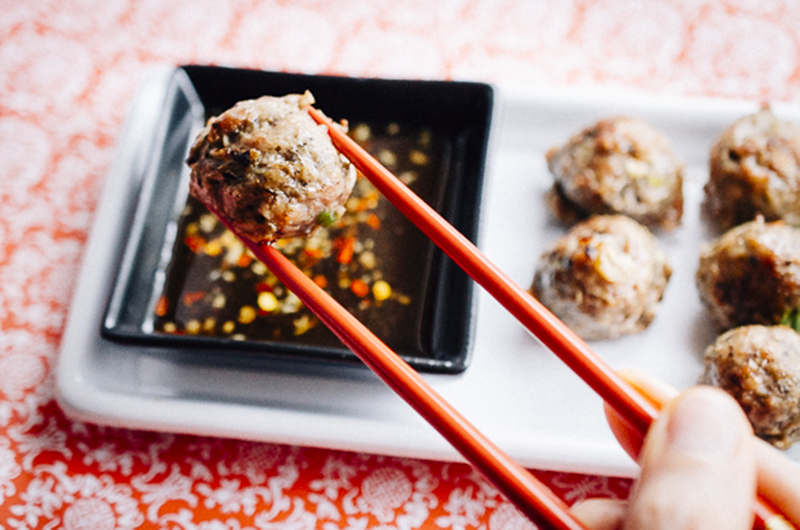
Armchair travel around the world!
Start your reading adventures with our FREE Reading Atlas.

- Around the World in 14 Books
- 7 Thrilling Book Series
- 6 Audiobooks That Are Like Theater For Your Ears



Food and drinks are some of the easiest ways — and the most fun— to vicariously experience another culture. When you add a great book to the mix, you've got the makings of a perfect evening. In Food+Fiction, we recommend a delicious read and a related recipe so you can try the taste of different destinations in your own kitchen.
This post is part of our Food+Fiction series.

The Great Passage is a sweet, gently told story about what happens when a determined group of word nerds set out to make the ultimate Japanese dictionary. The story spans the 15 years it takes to bring this massive tome to life, and the characters go through some stuff.
There’s a tender thread of romance between our hero Majime and Mitsuya, the girl who steals his heart. She’s a chef at a restaurant in Tokyo, and throughout the story, the food she prepares for Majime and his friends is a source of comfort, a sign of caring, and a way for the dictionary team to bond after work.
Gyoza are Japanese dumplings, usually filled with ground pork, chives, scallions, cabbage, ginger, garlic, and sesame oil; you might know them better as potstickers. These tasty morsels originated in China, but are super popular in Japan, especially in ramen shops and casual dining spots called izakaya. They’re almost always eaten with a dipping sauce (called rayu) made of equal parts soy sauce and vinegar, plus a little chili pepper. It’s got a sharp bite that balances the sweet, fatty pork.

In this recipe, we make things simple for home cooking by skipping the dumpling wrapper and, instead, roll the gyoza filling into a friendly meatball. Thanks to the shiitake mushrooms and soy sauce, these flavor bombs are loaded with umami. That’s a Japanese word defined by the scientist who discovered the unique taste; Doumo Arigatou, Dr. Kikunae Ikeda! Umami is based on the words uami (delicious or savory but not meaty) and mi (taste). In practical terms, it’s that almost indefinable thing that makes certain foods so luscious.

Makes 2-4. Prep 10 minutes. Chill 15 minutes. Bake 20 minutes.
Meatballs:
Dipping Sauce:
Preheat oven to 400F/205C. Cover a rimmed baking sheet with parchment paper.
Prep the meatballs. Place the mushrooms, cabbage, water chestnuts, garlic, chives, salt, ginger, red pepper flakes, black pepper, sesame oil, and soy sauce in the bowl of a food processor and pulse until it forms a chunky paste. Transfer to a large mixing bowl and add the pork. Mix well.
Add the secret ingredient. In a small bowl, mix the baking powder and water; it will fizz. Add to the pork and mix well. The baking powder acts as a leavening agent to render the meatballs crisp on the outside and airy on the inside. Place the meat in the fridge to chill for 15 minutes or up to overnight.
Prep the dipping sauce. Mix all the ingredients for the dipping sauce in a small bowl. Eat it at room temperature for the best flavor, but store leftover sauce in the fridge.
Roll the meatballs. Moisten your hands and a 1 tablespoon measuring spoon or scoop with cold water and shake to remove excess. Measure out the meat and roll into a ball between your palms. Line up the meatballs on the prepared baking sheet, about 1/2 inch apart. Place the meatballs in the oven and bake for 20-25 minutes, until golden brown and cooked through.
To serve, pile the meatballs on a bed of steamed rice or shredded iceberg lettuce and dunk in the dipping sauce. You can use a fork, but chopsticks are more fun.
‘A dictionary is a ship that crosses the sea of words,’ said Araki, with a sense that he was laying bare his innermost soul. ‘People travel on it and gather the small points of light floating on the dark surface of the waves. They do this in order to tell someone their thoughts accurately, using the best possible words. Without dictionaries, all any of us could do is linger before the vastness of the deep.’ — Shion Miura
This is a sweet and gently told story set in Japan that speaks lovingly of the power of words and the emotions contained in the particular arrangement of a few letters. Not much happens — a group of people toils for more than a decade on a new 2900-page (!) dictionary called The Great Passage — but everything happens: people fall in love, live and die, feel things, question themselves and others, make friends, break up, succeed, and fail. Just when it seems like it might get too precious — almost everyone is quite earnest and well-intentioned — there’s a touch of sarcastic humor that transforms the characters on the page on the page into real, contradictory, gloriously messy humans. {more}
This disarming workplace novel (222 pages) was published in June of 2017 by Amazon Crossing. The book takes you to Japan. Melissa read The Great Passage and loved it; it wouldn't be on our site if she didn't recommend it.
Bookshop.org is an online bookstore with a mission to financially support independent bookstores and give back to the book community.
Top image courtesy of Luca Florio.
Want to keep up with our book-related adventures? Sign up for our newsletter!
Can you help us? If you like this article, share it your friends!
Strong Sense of Place is a website and podcast dedicated to literary travel and books we love. Reading good books increases empathy. Empathy is good for all of us and the amazing world we inhabit.
Strong Sense of Place is a listener-supported podcast. If you like the work we do, you can help make it happen by joining our Patreon! That'll unlock bonus content for you, too — including Mel's secret book reviews and Dave's behind-the-scenes notes for the latest Two Truths and a Lie.
Join our Substack to get our FREE newsletter with podcast updates and behind-the-scenes info — and join in fun chats about books and travel with other lovely readers.

We'll share enough detail to help you decide if a book is for you, but we'll never ruin plot twists or give away the ending.
Content on this site is ©2026 by Smudge Publishing, unless otherwise noted. Peace be with you, person who reads the small type.